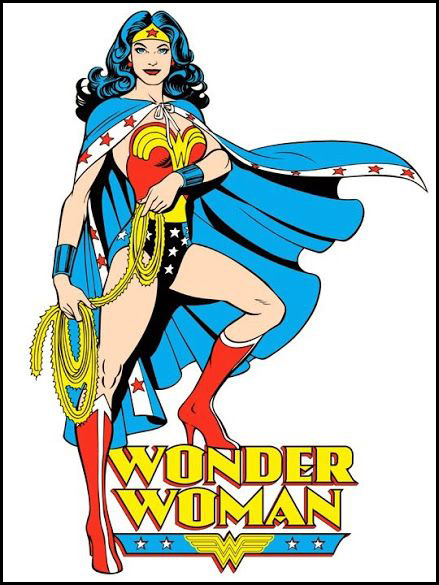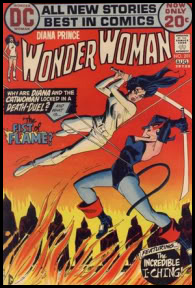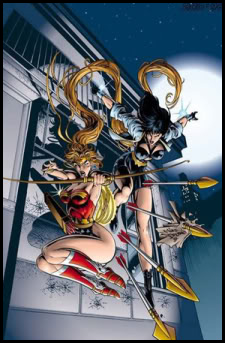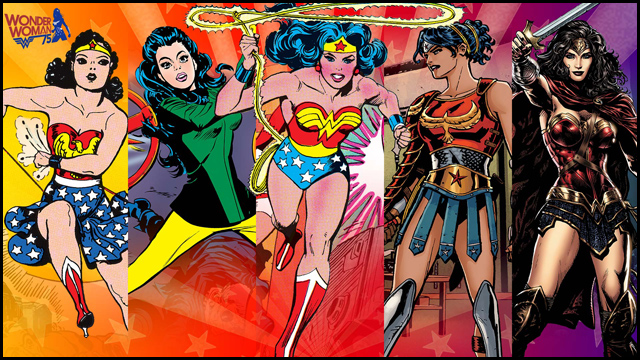One of the interesting things in having a website is checking the search strings that bring people to the site. In January this year, one of those search strings caught my attention. Someone was apparently investigating the question “Is the myth of Wonder Woman a lie?”
 The first thing that crossed my mind was why anyone was still asking whether any myth is a lie. But of course, that “still” is more a reflection of how much time I have personally spent studying myths and how they affect our lives. Not everyone else in the world has done that. There remain many who contend that anything talking about apparent divinities which is not about one’s personal deity is ipso facto “a lie.” So I guess I should address that aspect before starting out.
The first thing that crossed my mind was why anyone was still asking whether any myth is a lie. But of course, that “still” is more a reflection of how much time I have personally spent studying myths and how they affect our lives. Not everyone else in the world has done that. There remain many who contend that anything talking about apparent divinities which is not about one’s personal deity is ipso facto “a lie.” So I guess I should address that aspect before starting out.
I’ve said it before and I’ll say it again. Myth is about meaning, it is not about fact. Not scientific fact, not historical fact. Because of this distinction, regardless of what one’s personal religious beliefs are, it remains possible for anyone to gain understanding by considering what a particular myth means, either in a cultural context or a personal one. Thus, it is basically a non sequitur for anyone to ask if a myth is a lie. A lie about what?
Previously, I had discussed Wonder Woman and how difficult she is as a character: difficult for writers to get a full grasp on her. You can find those observations HERE. I won’t repeat the whole.
So, then I ran across the question of “Is the myth of Wonder Woman a lie?” That got me thinking some more.
I spent a lot of time in The Scribbler’s Guide to the Land of Myth looking at archetypal patterns that are specific to women, among all the other things I was analysing. But even those patterns are not completely gender exclusive. Most archetypes can apply to either men or women. I’m not going to repeat all that: it’s easily found in the book. Please, check it out in the book.
We have to first ask what is meant by “lie”. Are we asking whether something is congruent with scientific and historical fact? After all, lies are about what is untrue. Or are we asking whether something reflects a genuine emotional state that many people experience? Or an ideal that would be an actual improvement over current conditions? When we get to discussing whether emotional states or imaginative and idealistic considerations are “untrue”, we move into more ify territory. How do you tell someone that their subjective emotion response to something is a lie? How can that be a lie?
Secondly, we have to ask (again) what really is the myth of Wonder Woman? I point back to my previous post on the character.
But let’s look at the details, giving the whole question a detailed consideration.
Are Amazons (warrior women, not residents of the Amazon river basin) real? As a race or society in the modern world? No, they are not. Were the mythic Amazons real? That’s uncertain, and more a question of archeology and cultural anthropology. We do have many women serving as warriors, though, and doing so with competence and honor. So, we could call those female soldiers (and sailors and marines and members of the air force) “Amazons”. Which would make “Amazons” real in fact, and so since they exist, they wouldn’t be “a lie.”
Are the comic book Amazons real? No, it’s fiction. Within the “universe” of DC Comics, sure they exist there. But in our flesh and blood world? No. So the next question is whether Wonder Woman as we get her in stories exists or not? And since she is a fiction, her stories exist, as fiction.
But does any of that make “the myth of Wonder Woman” a lie? No.
What is it that we look for, when we look at heroes and their stories, their myths? What is the truth we seek in these things? We seek models, ideals, inspiration. We seek models of behavior that can help us cope more successfully with the world around us. We seek ideals that we can aspire to, the “best of the best” that we would want to be like. We seek inspiration that can help us in difficult times, just that spark of determination that will help us over the last difficult slope.
Wonder Woman is a high profile figure – the most widely known female superhero. Since her creation, she has held that eminent position.
So where does the question come from, that asks whether “the myth of Wonder Woman is a lie”? Is this a male versus female matter? Where male chauvinism seeks to suppress any independent female?
 In the 1970s, when modern feminism came to the forefront, there was certainly a lot of discussion of how men “kept women down”. Even as circumstances were changing, the debate went on (and, actually, still does continue). So it is interesting that in that era, the editorial decision was made to “de-power” Wonder Woman.
In the 1970s, when modern feminism came to the forefront, there was certainly a lot of discussion of how men “kept women down”. Even as circumstances were changing, the debate went on (and, actually, still does continue). So it is interesting that in that era, the editorial decision was made to “de-power” Wonder Woman.
At that time, “de-powering” her was a way of making this role model more accessible to the “average woman”. She became a martial artist and still continued to help people, especially other women. Of course, male superheroes don’t get “de-powered” for that reason. So, even in attempting to make her “more accessible”, a cultural double standard was in action: women need a more “realistic” role model, something they can actually achieve, while men can be inspired by improbably powered heroes because they understand how fictive heroes work as inspiration. (Okay, so I’m being snide about this. But the double standard was a little bit in effect.) Mind you, this “de-powering” was not done at the behest of the feminists. In fact, it was feminists who led the call for a return of “classic Wonder Woman.”
 She got her powers back in an inevitable ret-con. But Princess Diana has still been challenged in her position. In the 1990s, she lost her title as Wonder Woman.
She got her powers back in an inevitable ret-con. But Princess Diana has still been challenged in her position. In the 1990s, she lost her title as Wonder Woman.
But in this case, it was a matter of a specific story arc (wherein her mother was actually trying to protect Diana: it had been prophesied that “Wonder Woman” would die, so she orchestrated a substitution, but Diana was not told until Artemis, the substitute, died). However, one of the key things about this story arc was that it affirmed Diana’s position as a leader, not just of women but of her heroic peers. At the time, Diana had been the leader of the Justice League: when Artemis attempted to claim that position as well (as an extension of her duties as “Wonder Woman”), the League members made it clear that they followed Diana, not a title. Although she had “lost the right” to the emblems of her title, she continued in her heroic ways.
She regained her title, of course. Because she is Wonder Woman.
So, what would it be like without Wonder Woman in our imaginative field?
Certainly, there have been heroic women in the history of the world. Joan of Arc, for instance, who led the French to reclaim lost territories from the English, and who inspired a timid prince to claim his royal title of king. Elizabeth I may not have led on the battlefield, but she battled the chauvinism that claimed that women could not rule, outwitting men left and right (even her own advisors) in order to hold the power herself. There are historical models of strong, heroic women.
And yet, to have such a model in fiction, is an important thing.
She was a ground-breaking character when her creator Marston introduced her. He specifically intended her to be a role model and inspiration to girls, to parallel the inspiration the male superheroes were to boys. He had hit on a crucial thing: yes, girls and women do need a mythic or imaginative role model. But it goes beyond that. By accepting this strong female character into the imaginative field, all readers gradually accept the right of female characters to even be in the field. These days, of course, Wonder Woman has been joined by a whole force of female superheroes, each touching some chord in the audience (and no, they aren’t just sex-fantasy figures, no matter how frequently the male artists draw them as such).
So, this brings us back to our original point. What makes a myth a lie? Is it even possible to do that? If the myth speaks to something important in the audience, to the degree that it is communicable and durable, then there is truth in it. Not factual truth, perhaps, but emotional truth and truth in meaning.
So what’s the answer? The answer is: No, the myth of Wonder Woman is not a lie.

Images are the property of DC Comics.
